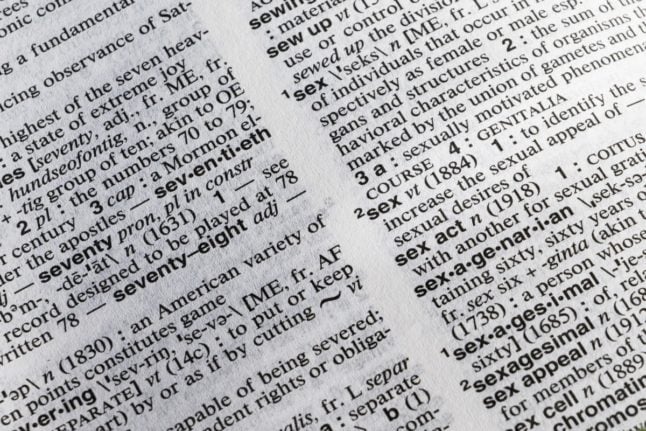Question: If a passionate kiss with tongues is a ‘French kiss’ in English, what do the French call it? An English kiss?
Unbelievably for the nation that apparently personifies the passionate kiss (linguistically speaking, at least), for many years the French language had no specific word for a ‘French kiss’ – people would use embrasser to describe all types of kiss, with the context suggesting whether that was a kiss on the cheek for your granny or a passionate snog with a lover.
There were also some slang words for a sexy kiss.
‘French kiss’ is an Americanism which has been around since at least the 1920s, and may date to the 19th century.
Older English words for a passionate kiss including snogging, pashing and making out.
For many years the French have understood and used the term ‘French kiss’ – and plenty still do – but it has never been popular with French language purists.
It wasn’t until 2014 that the French dictionary Le Robert included a French verb that means to ‘kiss with tongues’.
This is galocher – pronounced ga – losh – ay.
This wasn’t a new verb in 2014, in fact the word itself is very old, but the secondary definition of kissing was new.
It comes from “galoche” – an overshoe with a leather upper and a wooden sole that is worn over slippers or shoes to protect them – it’s where the English word ‘galoshes’ comes from.
From that, there’s the verb galocher which means to walk around noisily in galoshes, and which now has – thanks in part to its addition to Le Robert dictionary – its second, more intimate meaning.
The link between shoe and kiss is not immediately apparent, and we’re carefully ignoring possible noise-related suggestions, but a phrase rouler des galoches may help. The verb rouler – to roll – which, according to Les 1001 expressions préférées des Français, describes the movement of the tongue during a sensual kiss.
The verb is galocher and a French kiss is feminine – une galoche.
Use it like this
Elle s’est fait galocher par un prince charmant – she was passionately kissed by a prince charming
Love Island France: Gabriel galoche Camille… sous les yeux d’Anna – Love Island France: Gabriel French kisses Camille . . . right in front of Anna



 Please whitelist us to continue reading.
Please whitelist us to continue reading.
Member comments